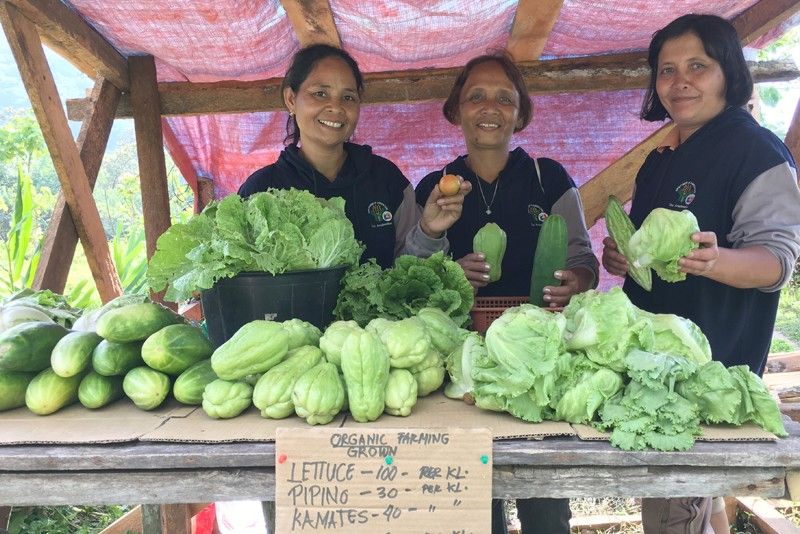Organic farming blooms in Camiguin

MANILA, Philippines — The province of Camiguin, known for its pristine and white sand beaches, has emerged as a hub for agribusiness activities.
Farming activities remain the dominant force and source of livelihood of its people.
However, little is known about a small, and thriving women’s group that is about to make an edge in the field of organic farming.
Mt. Timpoong Hibok-Hibok Ecotourism Association (MTHEA), is the current farmer-beneficiary of the Philippine-Korean project under the Asian Network for Sustainable Organic Farming Technology (ANSOFT).
MTHEA, organized in 2013, is registered as a farmers’ organization with the Department of Labor and Employment. Its members are mostly women and are residents of Mambajao, Camiguin.
In 2018, the provincial government of Camiguin tapped the association to enter into an organic farming village partnership with the Korea-based Asian Food and Agriculture Cooperative Initiative Inc., of which the Philippines is a member.
MTHEA is now actively engaged in organic farming such as making its own fertilizers and bio-pesticides. On a 5,000-square meter farm land, it has planted organically-grown eggplants, lettuce, tomatoes, cucumber, sweet peppers, corn and sweet potato.
Estrelita Balaman, president of MTHEA, said prior to their engagement with the AFACI, most of the farmers were into the use and application of synthetic or chemical-based fertilizers to grow their crops.
The farmer-beneficiaries have been recipients of various trainings on organic production. And in the course of the trainings, they were taught how to conserve the soil by showing contour farming with various types of hedgerows used and mix of cash crops and perennials grown in between, organic soil fertility management practice and other good agricultural practices like multiple cropping, crop rotation, crop diversification, integrated farming to reflect agro-biodiversity.
Proof of their labor, the association harvested its organically-grown vegetables and sold its produce in its municipality. A small vegetable-stall was also set up in the public market of Camiguin.
The first phase (2010-2012) of the ANSOFT-AFACI project in the Philippines was the establishment of the Mindanao Network for Sustainable Organic Farming System or MINSOFS, a network of members designed to organize a regional group of organic producers, technicians and consumers.
During project implementation, series of trainings and workshops were conducted to enhance the technical capabilities of organic researchers on organic agriculture.
To showcase organic farming technologies using local resources and soil conservation farm planning, a model organic farming village was first demonstrated in Barangay Mainit in Catarman, Camiguin.
Bautista said there are about 25 indigenous highland farmers receiving intensive trainings on organic agriculture production systems covering crop and livestock production principles and practices based on the Asset Based Sustainable Agriculture and Community Development philosophy.
The main objective of the project is to continue the development of organic farming villages by providing interventions to address farm productivity issues. These interventions are focused on key agricultural production such as, water resources development and management; soil conservation and agro-biodiversity management; and sustainable soil fertility management.
Aside from the mentioned interventions, there are continuing trainings and technology transfer activities being done through on-site coaching, sharing of experiences and exchange of information to farmers.
The Bureau of Agricultural Research is the overall national coordinator of AFACI projects in the Philippines. To date, out of the 14 projects being coordinated by BAR among the various proponents from the DA-bureaus and selected state universities and colleges, 10 have already been completed and four are still ongoing including the organic farm village in Camiguin.
- Latest





























